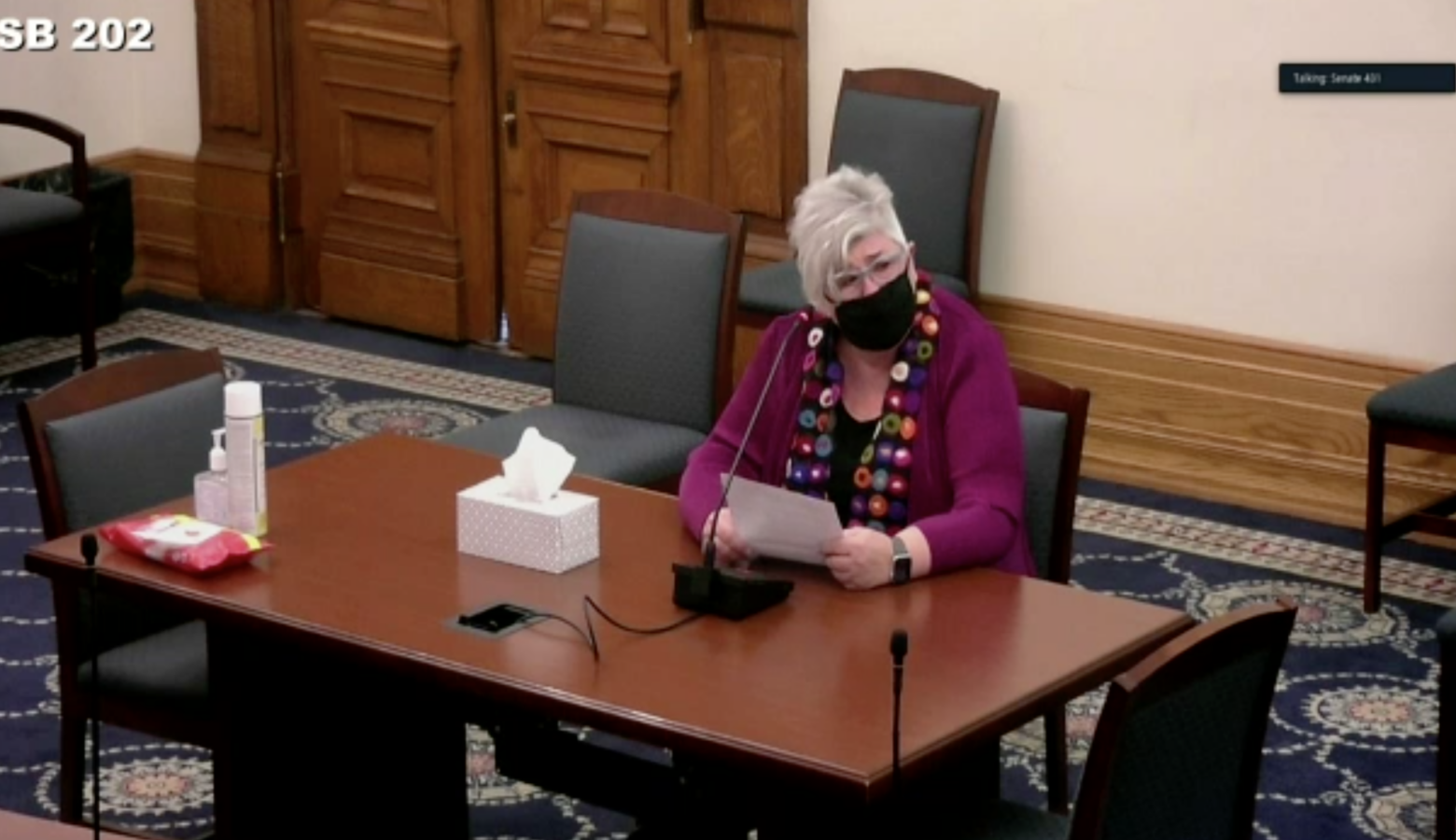Nursing Homes Must Allow Visitors During Lockdown Under Senate Bill

Indiana would require all nursing homes to allow at least some limited visitation for their residents – even during a pandemic – under legislation unanimously approved by a Senate committee Wednesday.
The bill proposes creation of an Essential Family Caregiver Program.
Indiana nursing homes cut off visitation during the pandemic, leaving many Hoosiers isolated from their families. Vickie Ayres’ mother was one of them. She died late last year after Ayres said she deteriorated in isolation at a nursing home.
“It is too late for my mom,” Ayres told lawmakers. “But you can make a difference in the lives of thousands of people by requiring essential family caregivers’ access into the homes where their loved ones are waiting.”
READ MORE: How Will Indiana Distribute COVID-19 Vaccines? Here’s What You Need To Know
Join the conversation and sign up for the Indiana Two-Way. Text “Indiana” to 73224. Your comments and questions in response to our weekly text help us find the answers you need on COVID-19 and other statewide issues.
The legislation would require nursing homes to allow designated family members access even under emergency order lockdowns, following federal government guidelines. Ayres noted those family members would still have to take precautions.
“If staff can come and go – tested, screened and with proper PPE – an essential family caregiver can do exactly the same thing and pose no additional risk to the residents or staff,” Ayres said.
Under the measure, a person could only be designated an essential family caregiver if they “regularly engaged” with the nursing home resident at least two times a week before any lockdown order. Each facility has the discretion to designate those caregivers – but they must justify any denial. And those denials can be appealed to the Indiana Department of Health or the long-term care facility ombudsman.
The legislation also requires nursing homes to allow family members and clergy to visit residents in “compassionate care” situations, even during lockdowns. Those situations would include end of life scenarios, a new resident struggling to adapt, a resident grieving the recent death of family or a friend, a resident experiencing weight loss or dehydration who needs encouragement from family and a resident who is not talking or interacting with other people because of emotional distress.
The bill now heads to the full Senate.
Contact reporter Brandon at bsmith@ipbs.org or follow him on Twitter at @brandonjsmith5.


